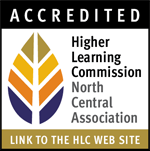John Hatch
Reconciliation: Benin Conference
(Addressing Slavery and Promoting Reconciliation in West Africa and the U.S.)
Charles C. Myers Library, Faculty Publications Collection
University of Dubuque
This webpage is a repository of primary source material for the book Race and Reconciliation: Redressing Wounds of Injustice by John B. Hatch (Lexington, 2008). While some of the public discourse examined in the book (e.g., state apology resolutions) can be accessed in other places, this site contains material that is not readily available elsewhere, as well as links to websites on which related information can be found. (The linked websites may become inactive over time).
To learn more about the book Race and Reconciliation, see its webpage at Lexington Books or Rowman & Littlefield.
Transcripts: The Leaders' Conference on Reconciliation and Development (LCRD)
In the late 1990s Mathieu Kérékou, president of the West African republic of Benin, decided to pursue national redemption from the guilt of the transatlantic slave trade and promote reconciliation among descendents of the trade's perpetrators and victims. Despite Benin's diminutive size, a large number of slaves were shipped from its Windward Coast, and several of its tribes participated with Europeans in the pernicious trade. In 1999, during a trip to Washington, DC, Kérékou visited African American churches to apologize for Beninese' people's role in the trade, and later that year the government of Benin held a reconciliation conference in Cotonou, one of the main slave ports of that era. The expressed purpose of this conference was for representatives of white Americans, white Europeans, and West African peoples to face the heinous crimes of the slave trade, make apologies, and seek forgiveness from members of the African Diaspora, thus laying a foundation for intertribal reconciliation in Benin, healing for African Americans (and other dispersed groups descended from African slaves), interracial healing particularly in the US, and fruitful relations between native Africans and African Americans for economic, social, and spiritual development. (For an in-depth study of the conference in historical context, see Race and Reconciliation,pp. 228-310).
The conference speeches on this website were transcribed from cassette recordings provided by the Benin Agency for Reconciliation and Development to the author (John Hatch) on his research visit in 2001. Speeches in French were translated into English by an American graduate student who grew up in France (Natalie Jeter), while those given in English were transcribed by the author.
Preparatory Speeches in the U.S.
The following addresses were given in 1999 at the Church of the Great Commission (in Camp Springs, Maryland, near Washington DC), when Pres. Kérékou visited to make known his intention to hold a reconciliation conference in Benin later that year. The addresses were transcribed by John Hatch from the church's video of the service, entitledA Message of Apology and Reconciliation to Afro Americans.
Bishop Perrin's Opening Sermon on Reconciliation
President Kérékou's Message of Apology and Invitation
Nancy Coen's Apology Statement
Bishop Perrin's Response
Leaders' Conference on Reconciliation and Development (LCRD) Day 1 Speech Transcripts
(For analyses of the following addresses, see Race and Reconciliation, pp. 250-274)
Opening Address by Bishop Perrin
U.S. Sen. James Inhofe's Apology*
U.S. Rep. Tony Hall's Apology*
Michael Fenton-Jones's Apology and Message to Africa
Message from President Eyadema of Togo
Apology and Challenge by President Rawlings of Ghana
President Kérékou's Opening Address
President Kérékou's Informal Comments
* For a comparative analysis of Sen. Inhofe's and Rep. Hall's apologies in Benin, see also John B. Hatch, "Beyond Apologia: Racial Reconciliation and Apologies for Slavery,"Western Journal of Communication 70 (2006), 186-211.
LCRD Day 2
To learn about the conferees' cathartic pilgrimage along the Slave Route in Ouidah, seeRace and Reconciliation, pp. 274-278. To obtain a copy of the documentary video Noble Desire (or another version entitled Noble Desire: A Time for Healing), which follows the entire conference, including the pilgrimage on Day 2, contact WHRO, 5200 Hampton Boulevard, Norfolk, VA 23508, Tel: 757.889.9400.
LCRD Day 3 Speech Transcripts
(For analyses of the following addresses, see Race and Reconciliation, pp. 278-87).
Address on Forgiveness by Georgina Du Foix
Lord Alton's Address on Principles of Reconciliation
Reconciliation Act
Bishop Perrin's Response to Benin's Apology
President Kérékou's Closing Address
For an examination of the aftermath and offshoots of the LCRD (particularly in the U.S.), see Race and Reconciliation, pp. 304-310.





